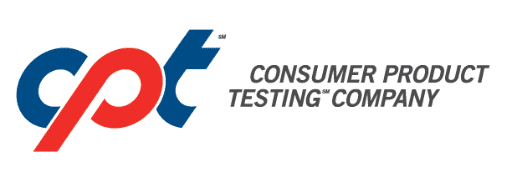Batch Release Testing
A hallmark of high-quality pharmaceutical and biopharmaceutical products is regular quality control screens prior to market release. Batch release testing proves that products meet pre-determined standards and regulatory specifications as well as ensures consumer safety. Given that raw materials, active pharmaceutical ingredients and final products are subject to some level of batch variability, it is imperative that manufacturers regularly screen products and product components throughout the production process. Analytical assessment of chemical, physical and biological product quality according to validated compendial (e.g., USP) testing strategies is the most effective approach for ensuring pharmaceutical product efficacy and safety.
For best results, Batch Release Testing should be performed by qualified personnel with experience in validated analytical methods. CPT Labs can provide expertise with all aspects of batch release testing.
Our Batch Release Testing Capabilities
CPT Labs has over 40 years of experience in consumer product testing and regulatory compliance evaluations for multiple industries including, but not limited to pharmaceuticals, OTC drugs, consumer healthcare products, cosmetic and personal care products, specialty chemical, and medical device industries. Our seasoned analytical specialists are highly knowledgeable in validated, product quality evaluation methods and regulatory stability requirements.
CPT performs batch release testing along USP compendial methods, which provide directives for raw material quality analysis, pharmaceutical stability, water quality, and preservative efficacy.
Batch Release Testing Outline
Raw materials include commercially available general ingredients (e.g., solvents, packing materials), commercially available active pharmaceutical ingredients (e.g., enzymes, chemical building blocks), and non-commercially available active pharmaceutical ingredients (e.g., in-house synthesized intermediates). Raw material analysis performs a crucial quality control check and confirms that materials used in production are of correct identity and suitable purity. Raw materials to be used in pharmaceutical production should be batch-tested under USP analytical methods. The most commonly applied tests are as follows: Residual solvents <467>, Heavy Metals <231>, Dissolution <711>, and Optical Rotation <780>.
Stability studies examine pharmaceutical product quality over time and under certain temperatures, humidity and light conditions and provide important information about best practices for storage conditions and duration to ensure drug safety and efficacy. Pharmaceutical manufacturers are required to perform shelf-life tests annually. For each year of manufacture, at least one product batch must undergo stability testing to confirm that the initially established expiration date is still valid. Should any considerable changes be made to the product formulation, container system, production process, or manufacturing site, the product will need to undergo additional stability testing to ensure quality is maintained. To establish stability during manufacture, transport and storage, several stability assessments must be performed as outlined by USP (<1150> Pharmaceutical Stability) and FDA Guidelines.
Water is a favorable breeding environment for many microorganisms that produce endotoxins that can make consumers ill. Because water is used throughout the pharmaceutical production process and often has a significant presence in the final product, it is crucial that manufacturers sufficiently evaluate water quality at all stages of production. The chosen combination of testing approaches required depends on the water type and intended product use. A selection of the most common USP water testing approaches are outlined as follows: <645> Water Conductivity, <643> Total Organic Carbon (TOC), <61> Microbial Examination of Nonsterile Products: Microbial Enumeration Tests, <62> Microbial Examination of Nonsterile Products: Tests for Specified Microorganisms, and <85> Bacterial Endotoxins Test.
Preservative efficacy testing (USP <51> Antimicrobial Effectiveness Testing) should also be utilized to assess microbial risk during batch release testing. Preservatives are necessary for certain product formulations to prevent microbial growth after the incidental introduction that may occur with regular use. Preservative efficacy testing helps manufacturers to determine the most effective preservative combination(s) and concentration(s) to include in a formulation as well as preservative stability under “shelf storage” conditions. To best represent “real world” microbial contamination, the efficacy test itself should take place in the original product container with enough material to allow for multiple sampling events. If isn’t possible to use the product container, sterile, capped bacteriological containers are sufficient. Suitability tests should also be run prior to preservative efficacy testing to ensure that the conditions of the microbial recovery analysis are optimal for analysis.
About CPT
With over 40 years of experience consumer product testing and regulatory compliance, CPT Labs is well-positioned to be an extension of your Quality Assurance team. We provide expertise in multiple industries including pharmaceuticals, OTC drugs, consumer healthcare products, cosmetic and personal care products, specialty chemical and medical device industries. Our seasoned professionals are well-versed in technical knowledge associated with the FDA, EPA and international consumer product regulations. All testing is accurately and appropriately conducted according to compendial and validated standards. We aim to best suit our clients’ needs and strongly adhere to Good Laboratory Practices (GLP), GMP and Good Clinical Practices (GCP) standards. Custom-tailored testing programs and flexible turn-around times are available. Contact us at your earliest convenience.

